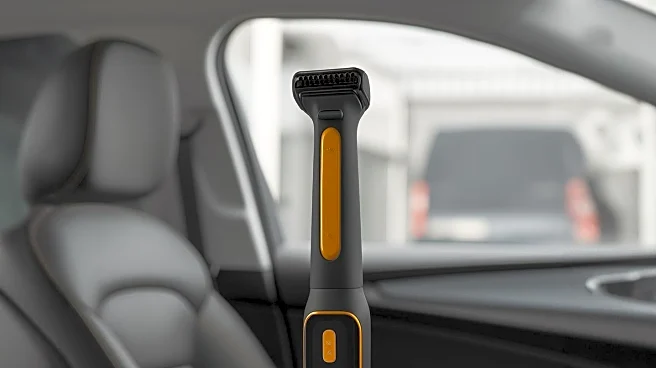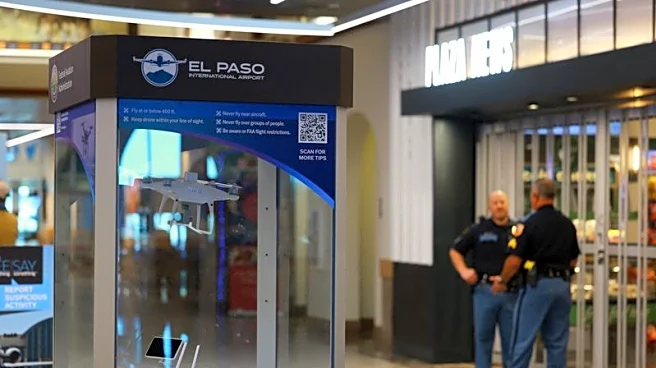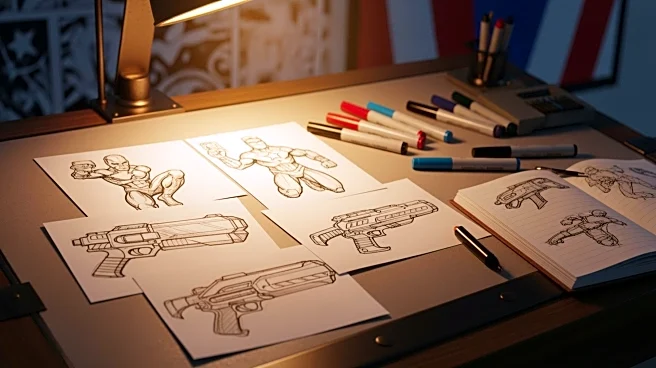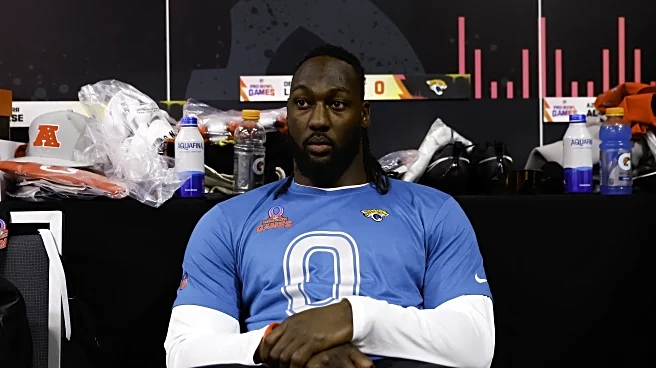What's Happening?
High school students are creatively personalizing their cars with various items that reflect their lifestyles and interests. Junior Avery Williams uses her car as a mobile closet, storing multiple outfits to accommodate her busy schedule as a student and lacrosse
player. Senior Aaron Chung fills his trunk with snacks for his English class, while Senior Shayne Porter keeps blankets for spontaneous adventures. Junior Evan Threatt carries a Spikeball net for weekend games, and Junior Elena Kunze Briseño stocks her console with lollipops for friends. Junior Charlotte Cutcliffe decorates her dashboard with rubber ducks, a tradition among Jeep owners, and Senior Asher Supple stores his golf clubs for regular visits to the Stanford range.
Why It's Important?
This trend of personalizing cars highlights the diverse interests and lifestyles of students, showcasing how they use their vehicles as extensions of their personalities and daily routines. It reflects a broader cultural shift towards individual expression and the practical use of personal spaces. For students, these personalized cars serve as mobile hubs that support their academic, social, and recreational activities, enhancing their ability to manage busy schedules and engage in spontaneous social interactions. This phenomenon also underscores the importance of cars in American youth culture as symbols of independence and personal identity.
What's Next?
As students continue to personalize their cars, this trend may influence automotive design and marketing strategies, with manufacturers potentially offering customizable features to appeal to younger consumers. Schools and communities might also consider supporting this trend by providing resources or spaces for students to safely personalize and maintain their vehicles. Additionally, this could lead to increased interest in car-related social activities and events, fostering community engagement and collaboration among students.
Beyond the Headlines
The personalization of cars by students raises questions about consumer culture and the environmental impact of vehicle ownership. As students invest in personalizing their cars, it may encourage a culture of consumption and materialism. However, it also presents opportunities for promoting sustainable practices, such as using eco-friendly materials for car accessories or encouraging carpooling to reduce carbon footprints. This trend could also influence future automotive innovations, with a focus on sustainability and personalization.

















